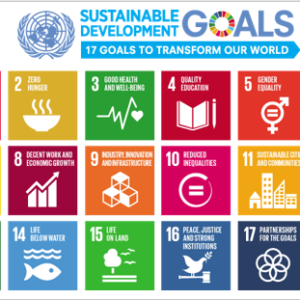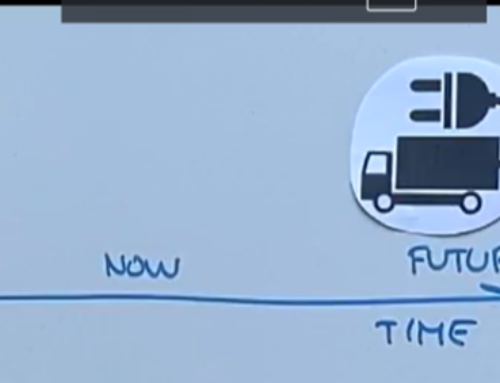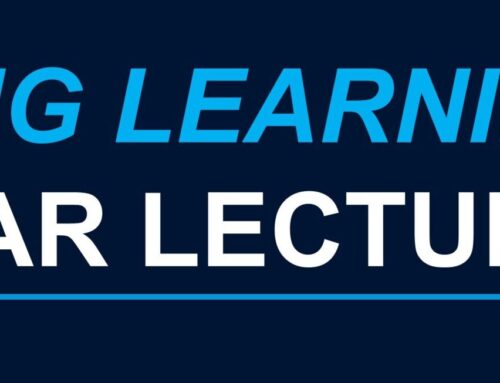In this blog, Anna Clark, Sustainability Strategy Co-ordinator, discusses the importance of education for sustainability.
Most students choose their degree subject because it’s something that interests them and is a topic that they want to learn more about. Embarking upon a degree programme is no small undertaking, so how can educators enable students not just to gain proficiency in their chosen subject but also to apply it to far-reaching challenges facing humanity. Even more importantly, how can we motivate and enthuse students to want to?
Humanity is in the midst of a sustainability challenge as we face the ever-apparent effects of an unfolding climate crisis. This can feel overwhelming to anyone at any stage in their life, let alone when you just want to finish this semester’s coursework, revise for exams and enjoy the endless possibilities that student life can bring. However, future possibilities find their roots in the present; a chosen degree subject often sets the foundations for an entire career path.
 Careers addressing sustainability challenges aren’t just for those with ‘sustainability’ in their job title, or those who chose to study an environmental science discipline. Every sector, every business, every nation on Earth is in need of a workforce and a population who consider sustainability in their decisions every day if aspirations like those set out in the United Nations Sustainable Development Goals are to be realised. But how do we equip our students as sustainability ambassadors in whatever they go on to do with their lives?
Careers addressing sustainability challenges aren’t just for those with ‘sustainability’ in their job title, or those who chose to study an environmental science discipline. Every sector, every business, every nation on Earth is in need of a workforce and a population who consider sustainability in their decisions every day if aspirations like those set out in the United Nations Sustainable Development Goals are to be realised. But how do we equip our students as sustainability ambassadors in whatever they go on to do with their lives?
As an individual with a years-long interest in sustainability and an enthusiasm for sharing the merits of applying our time in trying to achieve it, I have been shocked at how often I have heard the following statement after giving talks to students on the topic: “I don’t see how this is relevant to me as I am studying x”.
It has become apparent that there is much work to be done in not talking about sustainability as a separate discipline to be somehow bolted on to existing academic subject areas, but rather in embedding examples of sustainability applications into all subjects to actively and practically demonstrate relevance of each and every subject to the myriad of challenges that fall under the broad remit of making sure that our planet continues to be liveable for everyone, forever.
Heriot-Watt’s Global Environmental Sustainability team are currently working to develop a Climate Advocacy training programme to provide both students and staff with access to peer-reviewed climate science, individual accounts of the impacts of climate change, information about sustainability initiatives across the university and advice on where to start in adopting a more sustainable lifestyle. The provision of subject-specific case studies, examples of teaching and research activities and existing sustainability expertise across our community will feature. By making the available resources relevant to a wide range of disciplinary areas, we aim to incentivise and enhance levels of engagement from both students and staff.
Whether we’re training actuarial scientists to assess the risk of extreme weather events, language students to help effectively communicate the devastating impact of climate change at COP, fashion graduates to reject fast fashion in favour of a circular economy or sports scientists to consider the impacts of dangerously hot temperatures on athletes, there is crucial importance in presenting sustainability as a sought-after transferable skill in every discipline and in inspiring students to discover the opportunities they have to apply their knowledge to enable positive change.
Recent research (Lawrance et al, 2022) has highlighted that a significant proportion of young people feel anger, concern, disgust, guilt and shame when considering the impacts of climate change and the sustainability challenges facing society. This surely highlights that enabling students to realise the positive contributions that they can make to sustainability challenges shouldn’t just be considered in terms of their future careers and collective contribution finding solutions, but also to their own physical and mental well-being.
Climate anxiety is a real and recognised phenomena rooted in uncertainty about the future, for which the best treatment is the ability to take action to tackle the root causes of the environmental breakdown that we are already bearing witness to in the space of a single human lifetime. By demonstrating the applicability of an individual’s interest area to the greater interests of humanity we can bring hope to those who have perhaps previously looked to others for climate leadership and found themselves wanting.
As Prof. Zoe Robinson, in the Heriot-Watt New Year lecture 2022 encouraged attendees:
“As individuals we should inform ourselves, be willing to change, to collaborate and think about our role and responsibility… and in our teaching we should focus on solutions, embed action and activism, seek to empower and not just tinker around the edges.”
Heriot-Watt has made 10 Commitments on Global Environmental Sustainability and has embedded Learning for Sustainable Development in its Global Changemaker Curriculum Framework. HW staff and students who are interested in this area and want to develop their understanding, teaching and learning or who have ideas, queries and comments on how to embed sustainability across our curriculum should contact SustainableHWU@hw.ac.uk.
Further reading
- UN Sustainable Development Goals
- Prof. Zoe Robinson, Heriot-Watt New Year lecture 2022 – “The role of universities and the curriculum in a more sustainable future”
- AdvanceHE Education for Sustainable Development Guidance
- EAUC Sustainability in the curriculum project
- Embedding sustainability in the curriculum guide
COP28 Climate Hub at Heriot-Watt Dubai
Heriot-Watt University is hosting a Climate Hub at our Dubai campus to coincide with the UN Climate Change Conference, COP28, hosted by the UAE (30 November – 12 December). The global Hub will offer a collaborative space for visitors to work, host meetings and attend a series of events and exhibitions. It also includes a range of interactive activities such as experts discussions on innovative solutions to deliver a more sustainable future, exhibitions of research and innovation.
Image credit: Photo by Karsten Würth on Unsplash






